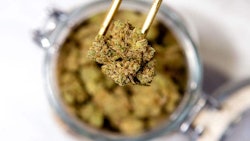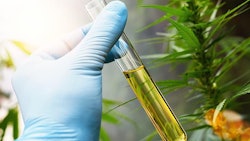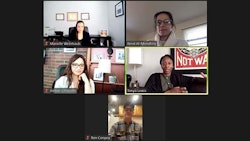Insurers are starting to offer policies providing reimbursement for weather-related damages to hemp crops, addressing a significant concern among growers.
According to a November survey by Hemp Benchmarks, hemp farmers faced various weather-related risks to their crops. For instance, growers in the West dealt with high temperatures, drought, and fires, while those in Colorado, Montana, and North Dakota suffered losses due to early snow or freezes.
Private insurers are starting to offer “weather contracts” to cover the weather-related loss. These policies include a new kind of coverage, known as parametric policies, where reimbursement is based on weather data instead of loss claims.
Adam Koh, Hemp Benchmarks’ editorial director, told Hemp Grower that these contracts are “essentially placing a bet on the weather.” “If the conditions in the coverage occur during the specified time frame of the contract, you get paid out,” he added. Koh said that a grower would likely work with an insurer to design a contract that covers what they feel would be the crop’s value, rather than relying on an adjuster to determine that during a claims process.
One company, the New York-based Arbol, launched its parametric hemp policy, HEMProtect, in spring 2020. Brian O’Hearne, the company’s head of sales, told Hemp Grower that HEMProtect is the first insurer to offer hemp parametric coverage.
The policy currently provides coverage for crops damaged by heat or water damage, including flooding. Arbol plans to expand coverage in 2021 to include damages incurred due to cold temperatures, such as an early freeze, and potentially have coverage for hail-related damage to crops.
HEMProtect typically costs 10 to 15 cents per dollar of coverage, O’Hearne said. The factors dictating these costs include the prevalence of weather risk and how much of a deductible an investor or grower group wants to take.
Reimbursement is based upon weather-related factors, such as temperatures, exceeding agreed-upon thresholds during specific coverage periods. These coverage periods include plant dates, maturity dates, and the amount and levels of coverage purchased.
While the U.S. Department of Agriculture (USDA) recently expanded its coverage and includes weather-related loss, it has specific prohibitions on coverage that Arbol does not, according to O’Hearne.
For instance, the USDA does not provide coverage for new growers as a farmer must have at least one year of growing experience, a contract to sell their hemp, and meet minimum acreage requirements. The department will also not cover losses of crops that exceed legal tetrahydrocannabinol (THC) levels, which would not prohibit coverage under a HEMProtect policy.


























